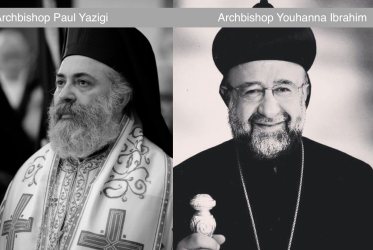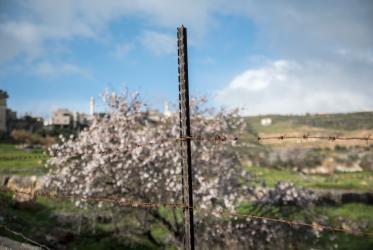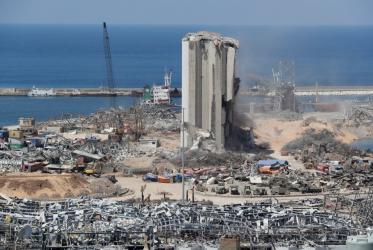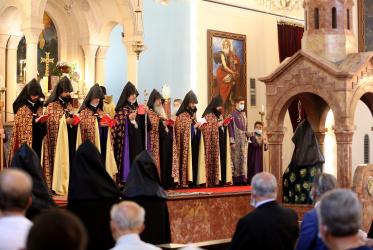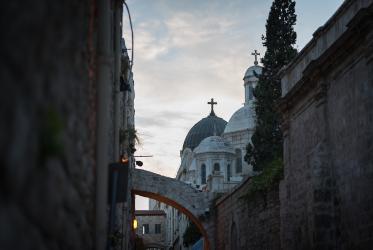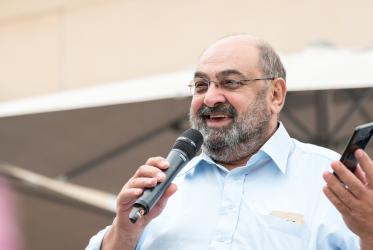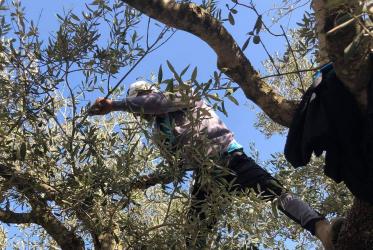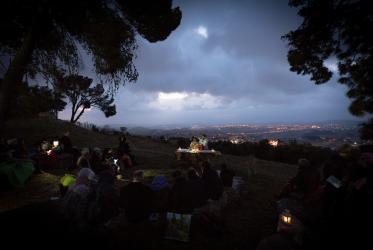Displaying 41 - 60 of 203
28 February 2022
WCC congratulates Dr Audeh Quawas on appointment to Jordanian Senate
27 November 2020
“Your life is in peace when you collect the olives"
29 October 2020
“Olive trees are holy signs of peace, older than anyone”
22 October 2020
Ecumenical prayer for peace in Syria
16 December 2019
12 Faces of Hope on display in Wales
12 December 2019
WCC expresses hope for work of the Syrian Constitutional Committee
01 November 2019
Dr Saïd Ailabouni: God is on the side of rejected, oppressed, occupied
12 September 2019
